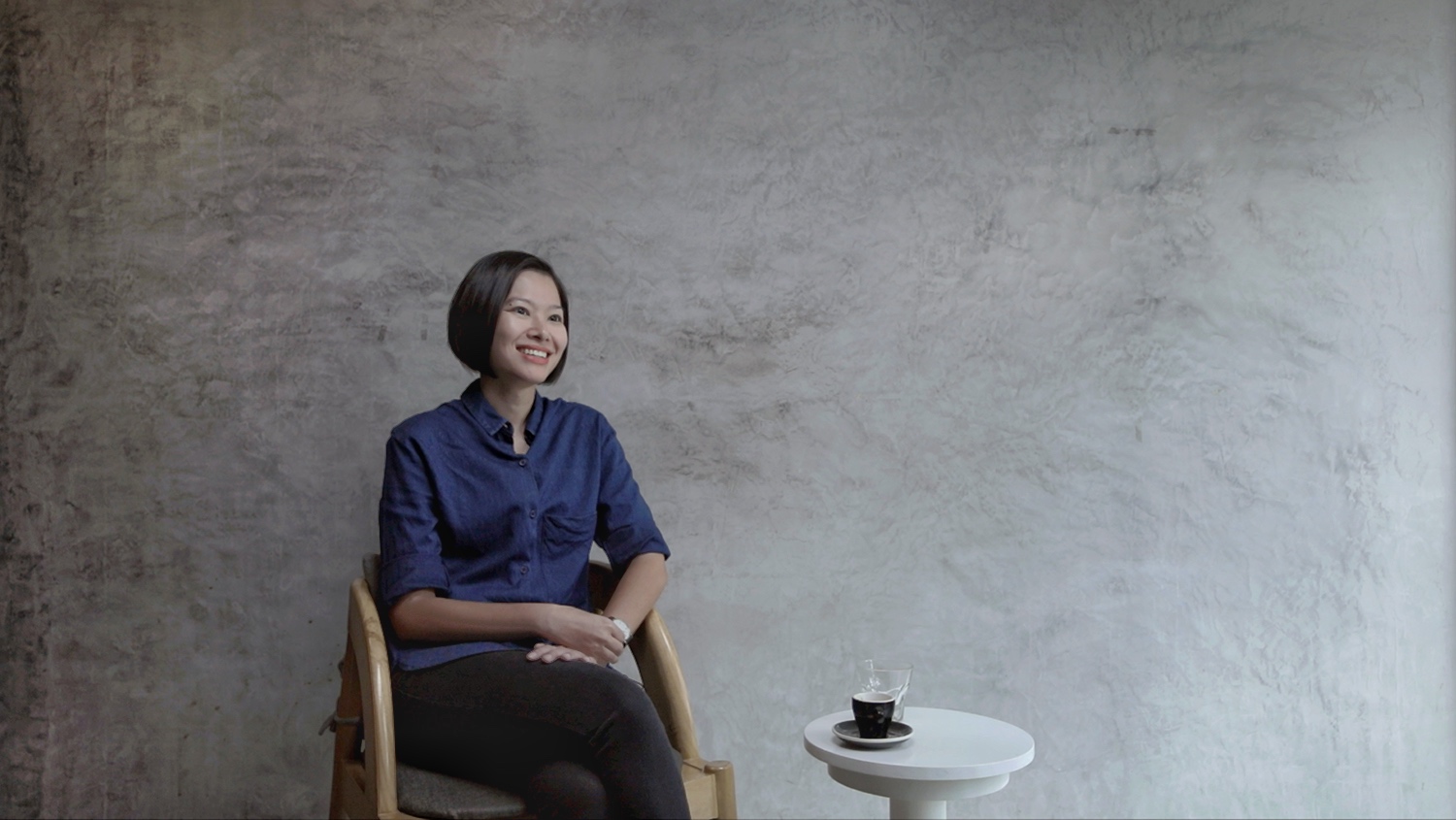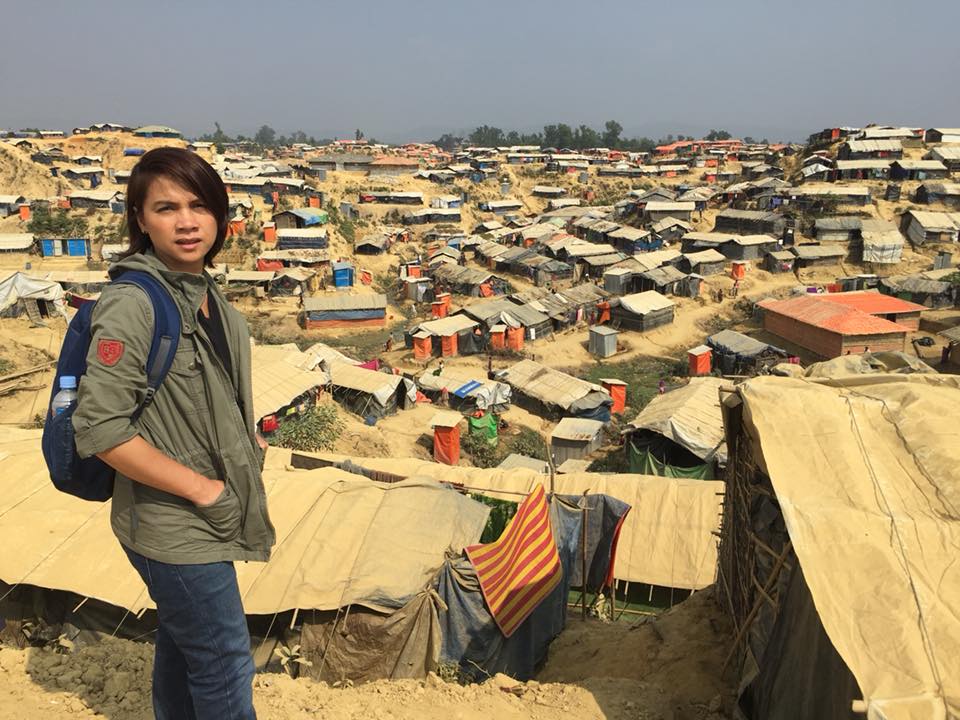Introduction
Nicole Curato

There is no need to be alarmist, but we are in trouble. We are in trouble because press freedom in Southeast Asia is on the decline. A political commentator was shot dead in broad daylight in Cambodia. Nations are ruled by strongmen who openly declared journalists as enemies. Media organisations are shut down and journalists are arrested based on obscure legal justifications.
We know what will happen if things do not get better. If the press is not free, power is left unchecked. If our journalists are silenced, the value of truth-telling is diminished.
But there is no need to be alarmed. On this International Women’s Day 8 March 2018, in this exclusive collaboration with BroadAgenda, we’ve put together a series of letters from the field, written by the region’s most insightful journalists.
These women’s message is simple. We’ve got this
These women’s message is simple. We’ve got this.
This series features six letters from Malaysiakini’s Annabelle Lee (Malaysia), Rappler.com’s Pia Ranada (Philippines), Prachatai Online’s Thaweeporn Kummetha (Thailand), Thai PBS’s Hathairat Phaholtap (Thailand), and freelance journalists Amanda Tazkia Siddharta and Febriana Firdaus (Indonesia).
Each letter tells stories of overt intimidation and subtle forms of silencing. The gendered dimension of these stories could not be more pronounced. In this series, we will present stories of powerful men ignoring questions from female journalists, military officers instilling fear to inquisitive reporters, religious fundamentalists declaring one an infidel for covering LGBT issues, and a sexist head of state banning a young journalist from coverage.
We are reviving the art of letter-writing because we believe in the subversive power of deeply personal reflections. They soothe anxieties in dark times. They inspire willfulness when it is time to act. They are reminders that the pressing for freedom is a collective yet deeply personal fight.
I learned that self-doubt is common but quitting is not an option.
I learned a lot reading these letters. I learned that self-doubt is common but quitting is not an option. I learned the power of women from different newsrooms coming together to demand answers when they are ignored. I learned that despots feel threatened by women who refuse to back off.
To all women fighting for press freedom, don’t let tyrants grind you down. We know they won’t win.
Nicole
Dr Nicole Curato (@NicoleCurato), BroadAgenda Guest Editor for the International Women’s Day. She is a Senior Research Fellow at the Centre for Deliberative Democracy and Global Governance at the University of Canberra and holds Australian Research Council’s Discovery Early Career Research Fellowship for her work on democratic innovations in sensitive political contexts.
***
Freedom from self-censorship
Annabelle Lee
 Hi there,
Hi there,
My name is Annabelle, and this March marks my first year as a journalist.
I work at one of the few independent newsrooms in Malaysia, a country ranked 144 out of 180 for press freedom last year (North Korea polled 180), where “mainstream media” is made up of mastheads owned by political parties that form the federal government.
I was also told to be prepared for catcalls and sexual innuendoes by virtue of being a woman in the “dirty” field of political reporting
When I began, I was repeatedly warned that I would be barred from events because of the supposedly “anti-government” organisation I represent. I was also told to be prepared for catcalls and sexual innuendoes by virtue of being a woman in the “dirty” field of political reporting.
When an article revealed that male politicians sexually harassed some of my female colleagues, to my horror, our journalist union chief’s advice to female journalists was to not dress “sexy”.
“That’s just how things are,” I was told. Welcome to journalism.
I was “lucky” when allowed into events I was assigned to cover. On more than one occasion, I merely smiled when inappropriate remarks were directed at me.
I would love to say I was unfazed by all this, but the truth is I was constantly considering self-censorship
I would love to say I was unfazed by all this, but the truth is I was constantly considering self-censorship.
This negotiation was tiring and frankly, suffocating. It distracted me from pursuing the truth and held me back from holding those in power accountable.
It wasn’t until I shared my frustrations with other women in the field when I stopped worrying so much.
Despite being from different newsrooms, experienced female journalists encouraged me to press harder for answers when I considered holding back. They assured me that if anyone at work was inappropriate towards me, they would stand in solidarity as I reported it. Often, when on assignment together, we would work as a team to try and shake answers out from the powers that be.
I found a lot of comfort and strength in them. They became my mentors and friends.
Today, I don’t feel like I am negotiating press freedom as an individual anymore
Today, I don’t feel like I am negotiating press freedom as an individual anymore. We are a tribe, and we are fighting both battles together – for press freedom and against a deeply patriarchal culture.
This International Women’s Day, my hope is that women work together to record history through journalism. Journalism needs to prove that it can be a trusted and relevant source of information at a time when “truth” is an increasingly contested concept.
And as Malaysia decides her fourteenth government this year, I urge my colleagues to band together as we push to deliver truth to the people.
In solidarity,
Annabelle
Annabelle Lee (@annabellybutton) is a journalist at Malaysiakini.com. She writes about current affairs and politics.
***
To bring truth is to bring peace
Hathairat (Wist) Phaholtap
My goal in being a reporter is to promote peace.
I have been covering stories of violence in Thailand’s Deep South for five years. I have grown tired and frustrated with what I have witnessed, but a story of a young woman, Khurosmor Tuwaebuecha kept me going.
Khurosmor lost her husband, Abduldayib Dolah in December 2015. A military group in the Pattani province detained him for they thought he was a member of the Runda Kumplan Kecilm, a militant Islamic insurgent group. He died after twenty-six days in detention. Khurosmor believes he was tortured.
I personally talked to Khurosmor in August 15, 2016. I met her three children, all of them in primary school age. She was also looking after her brother’s children—two boys—after he disappeared while under military custody.
One can only imagine the fear and pain she was experiencing. But Khurosmor had the resolve to act and decided to sue the army. She lost in her first court case but did not lose hope. She filed an appeal. Her family, she said, deserves justice.
Hers is a story, not of a victim, but of someone who fights even when the odds are stacked against her
As journalist, I considered this story of prime importance. Hers is a story, not of a victim, but of someone who fights even when the odds are stacked against her.
I did further research and found reports documenting over sixty people who have fallen victim to torture and human rights violations in Southern Thailand. Human rights groups documented cases of suffocation using a plastic bag and strangulation, among others. More than 6,000 people are under custody, justified under Thailand’s state of emergency laws.
I sought the side of a military spokesperson and the Secretary General of the Southern Border Provinces Administrative Centre. They denied the allegations of torture. They told me I got the wrong information especially on torture. They told me not to report my story.
Their reaction was predictable. Politely, I told them I would like to help bring peace to the Deep South by doing my job as a journalist.
Inspired by Khurosmor’s courage, I continued investigating these cases. I read reports of Amnesty International, among others, and learned that the use of torture takes place in our neighbouring countries, including Vietnam and the Philippines.
Media organisations are not public relations companies
After writing the script and completing the shoot, I sent my package to the organisation that commissioned my work. They told me to reconsider my story, perhaps change my script. They discouraged me from broadcasting my report for it portrays a negative view of Thailand to the international community. I rejected this request. Media organisations are not public relations companies.
On August 28-29, 2016, my story went on air in the evening news program on Thai PBS.
We cannot solve a problem by hiding facts
I share this story to you because I think we share similar problems of violence, intimidation, and suppression of speech. But we know we cannot solve a problem by hiding facts. Violence, whether it is in Thailand’s Deep South, or the Philippines’ secret detention facilities, cannot be eradicated without the press reporting these atrocities.
To bring truth is to bring peace.
Yours in solidarity,
Hathairat (Wist) Phaholtap
Hathairat (Wist) Phaholtap (@Hathai_Thai PBS) is a journalist for Thai PBS. She is best known for her work on human rights in Thailand.
***
Colleagues, our fight will be fruitful
Amanda Siddharta

Dear colleagues,
Have you ever stopped and wondered if things could be different?
Can you imagine a situation where the places we live in aren’t plagued by sinister attempts to silence us, where journalists aren’t being charged with espionage, where governments do not shut down independent news outlets for being critical?
Press freedom is under attack in ASEAN. This is the very reason why we need brave women like you.
These leaders are often too busy making or invoking laws that curtail our freedom to tell stories that move people to action
At a time when fake news floods our Twitter feeds, the public relies on us to expose harsh social realities. Human rights violations, persecution of minorities, and climate change are issues of a global scale that demand action from our leaders. But these leaders are often too busy making or invoking laws that curtail our freedom to tell stories that move people to action.
But we try anyway. We know that integrity and fair reporting are critical not only to sustain a functioning democracy but also to ensure a just future.
I can only imagine how you go to great lengths in a profession that is often described as a calling. I know a lot of you went to the field,with your best foot forward, ready to face the risk of being harassed, attacked, or threatened with death. I know this because I see the passion in your writing. I know this because I have seen your confidence in pursuing a story, despite the limits imposed by the boy’s club of journalism.
Every attempt to rob us of our voice is a poignant reminder that we must stand together
Every attempt to rob us of our voice is a poignant reminder that we must stand together. We will be relentless in our pursuit of facts and commitment to ethical reporting. I know that you will, because you are all the very definition of courage.
I hope you, my sisters in journalism, do not ever doubt yourself. In difficult moments, know that we are here to support each other. All the sacrifice you have made in the name of freedom speech will not be in vain. Your fight will be fruitful.
Yours sincerely,
Amanda Siddharta
Amanda Siddharta (@AmandaSiddharta) is a freelance journalist. She writes for a wide range of media, including South China Morning Post and Reporting ASEAN




